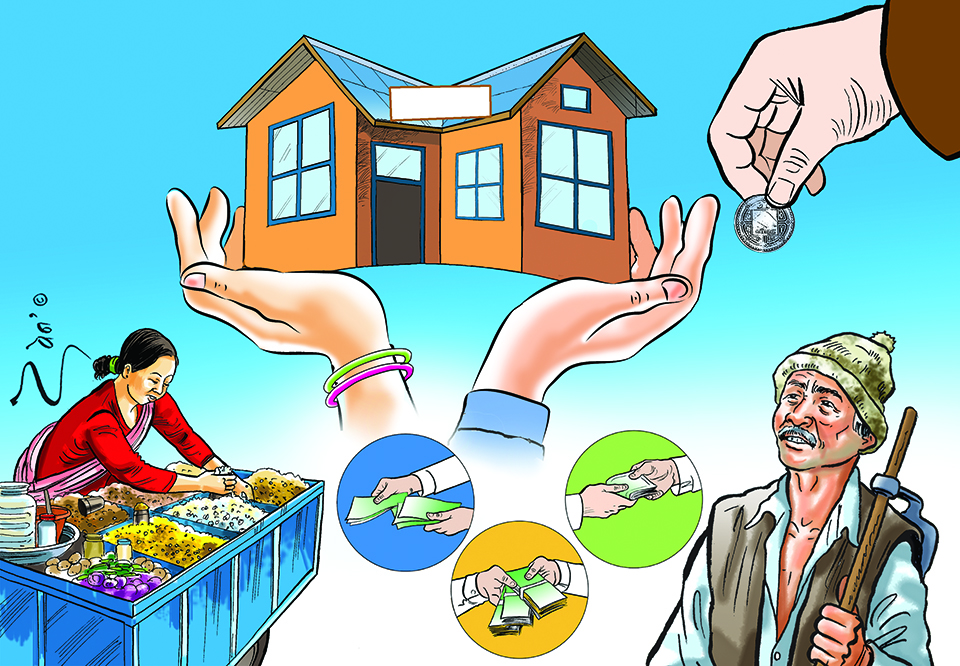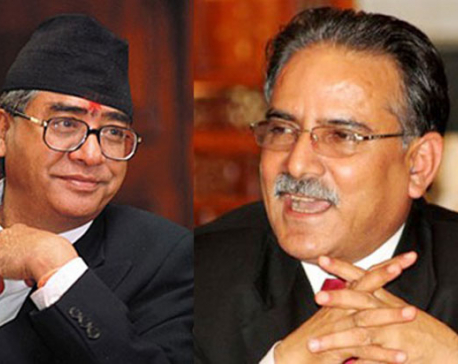
OR

What kind of prosperity and development are we aiming for? Where do quality infrastructure and efficient human resources feature in this development narrative?
Few weeks ago I, along with my husband, visited our hometown in Pokhara to have our marriage certificate made. As we reached the ward office, we were flabbergasted to witness its sorry state. The office was running in a four-room building, devoid of appropriate infrastructures and human resources to deliver basic services. The ward office lacked basic facilities like internet connection, a functional printer and computer to do a range of personal event registration tasks for which people visit it every day. Infrastructures were either insufficient or not in a working condition. Similarly, human resources were also not well trained to operate them efficiently.
It took us almost three and half hours to get the job done, which normally should have taken ten minutes at most. The officials asked us to go to the nearby cyber café, to get the basics like filling online registration form and getting it printed for the ward office. The cyber café had its own share of mismanagement—absence of sound infrastructures and ill-equipped human resources. The lady operating the cyber café was not really competent enough. She filled the form thrice, repeatedly making mistakes, before it actually came to the perfect shape. The process of issuing the certificate turned out to be so time consuming and troublesome that one of the officials said things were much easier and reliable earlier when they were done manually. For me this is a representative case.
It speaks volumes about condition of our local offices. One year has passed since Nepal conducted historic local elections. Reportedly most of the rural municipalities are reeling under acute lack of staffs and physical infrastructures. Government’s failure to manage appropriate physical infrastructures and trained manpower has dashed the hopes and dreams of many citizens who wish to see and live in prosperous Nepal. So what kind of prosperity and development are we aiming for? Should it be evaluated in terms of how many road networks we are going to build and how many smart cities we aspire for? Where does quality infrastructure feature in this process? What about the need for efficient human resources?
Big dreams
The government of K P Oli has rolled out ambitious annual policies and programs and budget to achieve economic prosperity, development of physical infrastructures and enhancement of quality of services. The government has allocated a hefty amount of budget for infrastructure development to materialize its agendas of road networks, smart cities and smart toilets with modern facilities.
The government has also announced that all government service delivery will go digital and all the headquarters of local bodies will be connected with broadband internet within the next five years. Road to digital delivery through expansion of infrastructures undoubtedly is a positive step. This is so primarily because Nepal’s development has been marred by infrastructural limitations for many years. But as we focus on setting up infrastructures it is also necessary to be mindful of prevailing local realities that majority of the people live in. It is important to assess the capabilities and limitation of the people who are the beneficiaries of infrastructures. We need to find out how well infrastructures suit their everyday needs. Much of the development projects that have been carried out so far do not address the local needs of the grassroots people. Promise of bullet trains and smart cities does not make much sense to a farmer living in hinterlands of Humla where apples are rotten on farms due to the lack of roads.
Ensuring two meals a day will be more realistic and meaningful for women and children in the mid and far-western Nepal where many go to bed hungry. We need plans that address such needs of people. The problem cited in the beginning of the article is the result of short-sighted plans and programs floated without doing sufficient homework. Besides, such plans are not integrated in a way that enhances the skills and capabilities of people in remote villages of Nepal. So people have to be deprived of basic services or they face a lot of hassles to benefit from them.
Invest in human capital
Lack of vocational skills and education has largely hindered Nepal’s development process. Vocational and technical skills must be imparted to people before we introduce latest technology in local levels. Only then can the service providers and beneficiaries make most out of the available infrastructure. Currently, whatever skills and education that has been imparted are not practical, sufficient and socially useful to deal with wide range of problems—technical as well as societal—that may come along. As a result if something goes wrong all the activities get halted until and unless an expert comes to fix the system.
Thus we need to upgrade our rural municipalities by making experts out of the locals, mobilize them in local levels. We also need to empower and motivate government employees so that they can provide better services to the people. It is equally important for to complete the plans for development in stipulated timeframe. To our dismay, what we have been witnessing is that even if the plans and programs are implemented corruption and financial irregularities engulf them. And we get the projects delivered with substandard materials used.
The dream of developed, digital and connected Nepal will largely depend on attitudes, knowledge and skills of people that are required to initiate, implement and sustain it. Yes, the country needs to invest in infrastructure to address huge infrastructural gap that will provide necessary impetus to unleash country’s economic potential. But we must be mindful of the reality that in absence of equipped and trained manpower and realistic goal, the dream of ‘Prosperous Nepal, Happy Nepali’ might remain just a dream.
bhatta.meena@gmail.com
You May Like This

EC puts RPP row on hold
KATHMANDU, April 21: With the election just around the corner, the Election Commission (EC) has put the dispute over 'Hindu state'... Read More...

SC scraps TRC guidelines for putting complaints on hold
KATHMANDU, Feb 1: The Supreme Court on Wednesday scrapped the guidelines for the Truth and Reconciliation Commission for putting complaints it... Read More...

PM Dahal, Deuba hold talks on impeachment motion
KATHMANDU, OCT 20: Prime Minister Pushpa Kamal Dahal and Nepali Congress President Sher Bahadur Deuba have discussed the impeachment motion... Read More...




Just In
- Govt receives 1,658 proposals for startup loans; Minimum of 50 points required for eligibility
- Unified Socialist leader Sodari appointed Sudurpaschim CM
- One Nepali dies in UAE flood
- Madhesh Province CM Yadav expands cabinet
- 12-hour OPD service at Damauli Hospital from Thursday
- Lawmaker Dr Sharma provides Rs 2 million to children's hospital
- BFIs' lending to private sector increases by only 4.3 percent to Rs 5.087 trillion in first eight months of current FY
- NEPSE nosedives 19.56 points; daily turnover falls to Rs 2.09 billion
















Leave A Comment